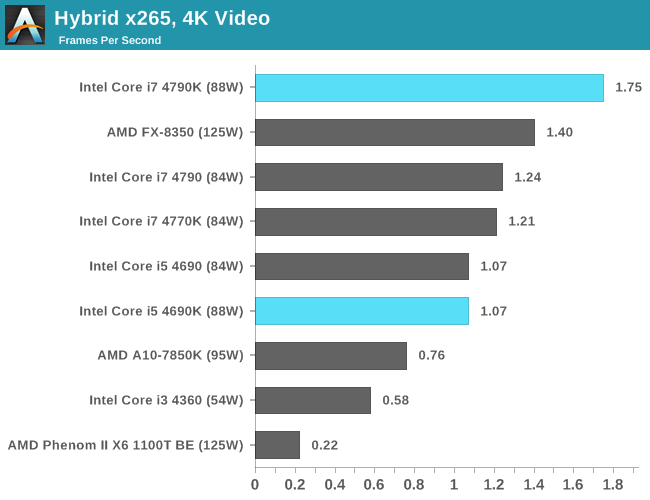It's not a small amount of money in the slightest, considering I'd have to throw away my H81 board and buy a Z97 board and an aftermarket heatsink and hope to win the silicon lottery. So I'm throwing an extra $125 for the board, $30 for the heatsink, plus the $50 all for the 4690k vs the 4460. I might as well buy a locked i5 now and buy a locked i5 Skylake in a couple of years for that cost and I'll probably be way better off.
There's no need for a Z97 board if you're getting a locked Haswell chip. The only advantage of a Z series chipset (compared with an H97, for instance) is overclocking.
Why should I care about the upper limits of turbo frequency? On an i5 4690 I'd never hit 3.9 GHz when all four cores are loaded. If I cared about running single or dual threaded workloads at 3.9 GHz I'd never even buy a locked i5, since my G3258 @ 4.4 GHz would be a much better option that wouldn't cost me a cent more. Turbo boost sounds like Intel marketing; the whole point of frequency scaling is to go downward to save power when the CPU isn't being heavily utilized. If I'm running four cores at 100%, e.g., when the CPU is the bottleneck, is the CPU even going to be able to go into any turbo state?
Not exactly. Turbo is really just maximum clockspeed. A CPU that has 25% higher clocks will deliver 25% better performance/framerates in CPU-bound scenarios, both single- and multi-threaded. Turbo allows Intel to sell CPUs that can deliver bursts of performance that exceed the cooling needs advertised, which is important to OEMs.
When encoding or gaming, your CPU will maintain highest turbo state on all 4 threads so long as it doesn't exceed Intel's power limitations (the TDP) advertised. Generally, your CPU will always be running at max turbo in a desktop computer as TDP ratings are plenty high.
EDIT: Personally, I'd stick with the H81 board and plop in your highest compatible locked Haswell. That'll give you the most bang for your buck, unless you really want some of the features in a higher-end board. Haswell chips often have less overclocking headroom than previous generations.
You basically have 3 tiers of choices:
1. H81 + lowest end Haswell i5
2. H81/H97 + highest end locked i5
3. Z97 + 4670K
IMO, the most value is in option 2, but none are bad choices.





